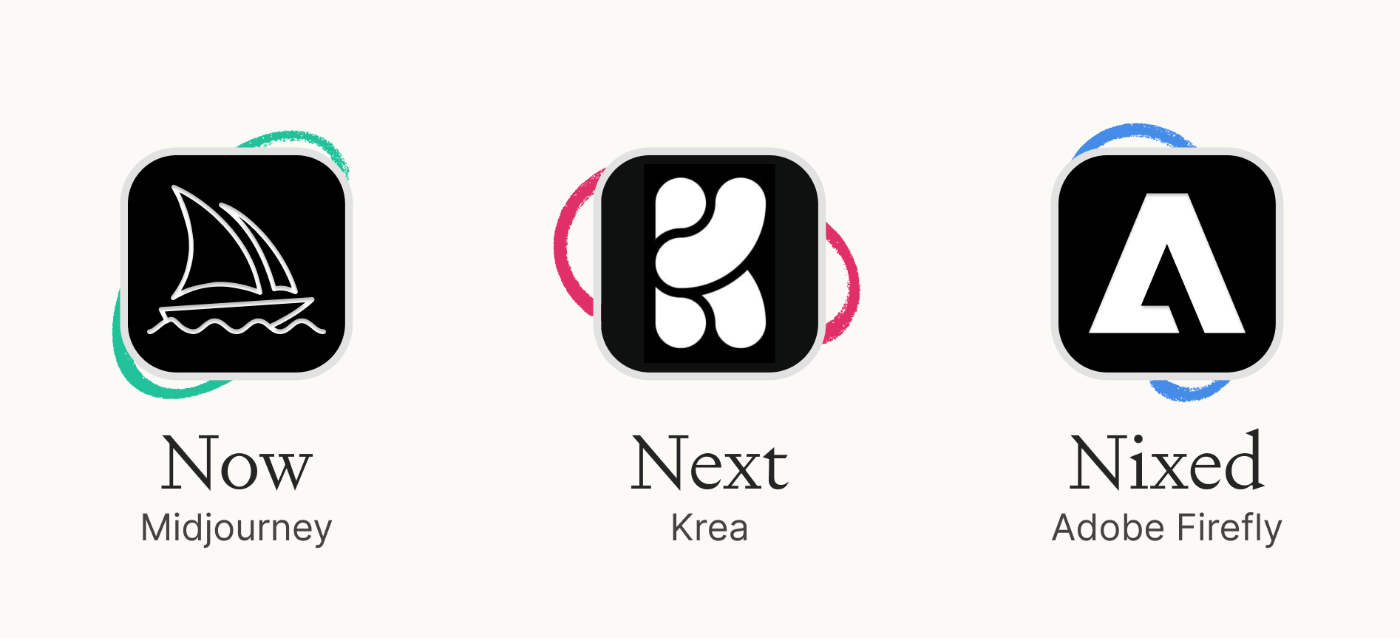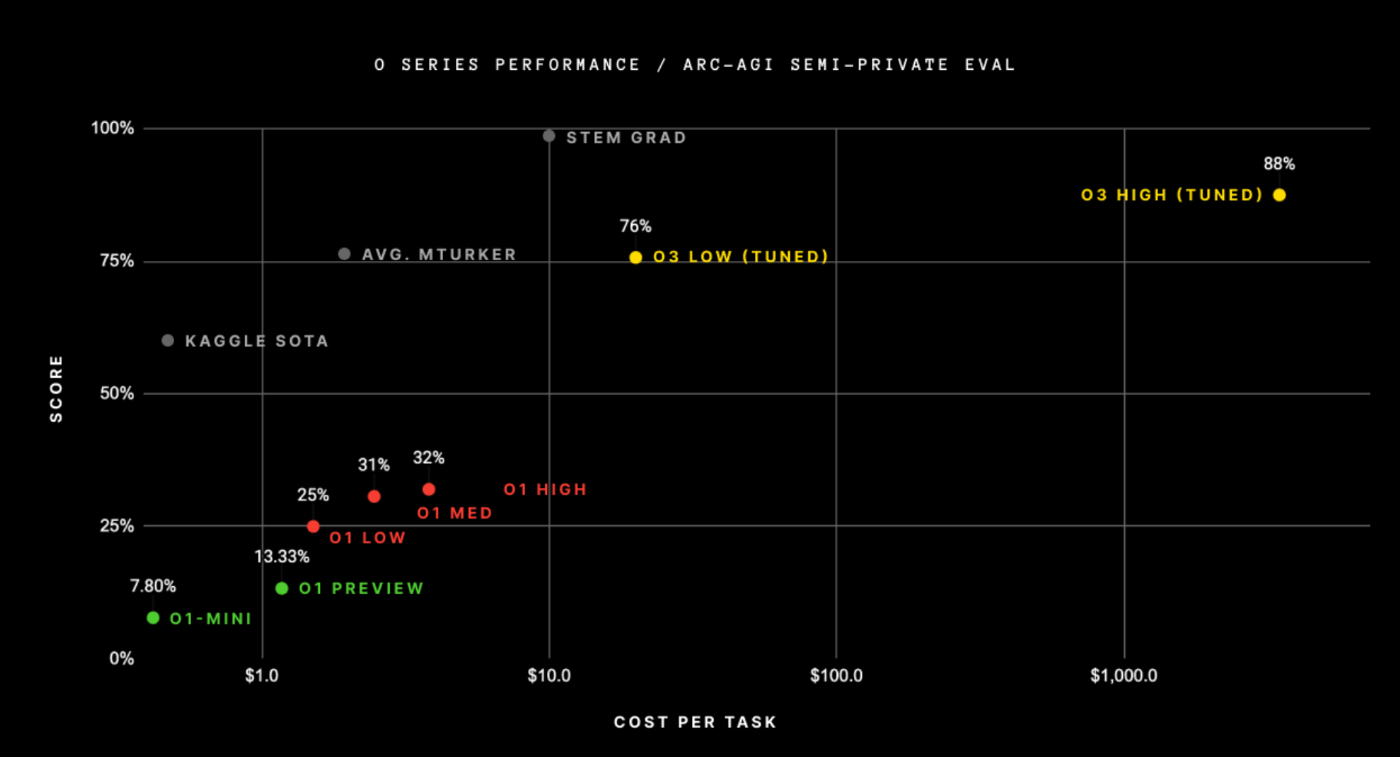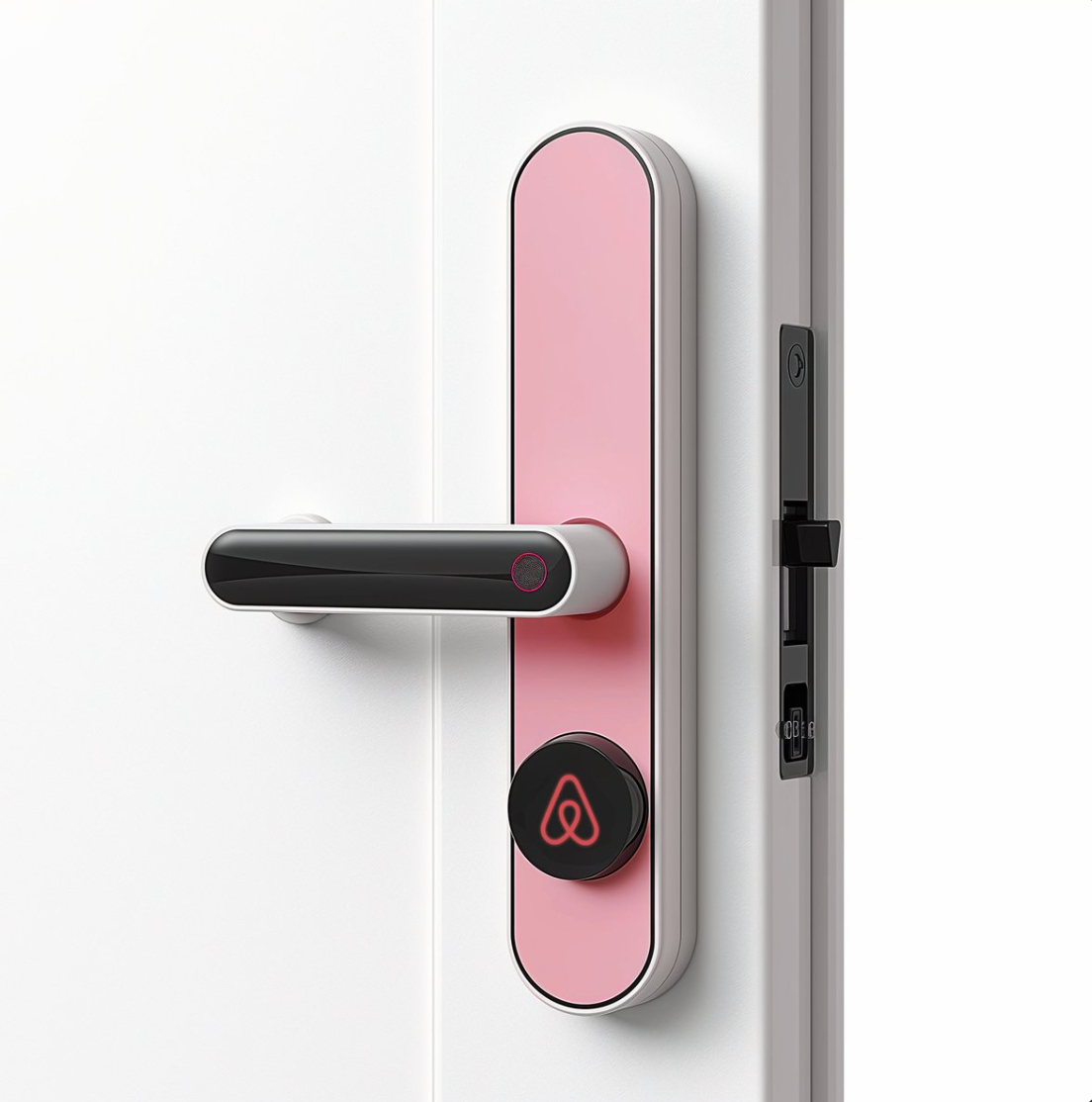
Everything You Need to Know About OpenAI’s New Model, o3
Plus: Join the waitlist for our new email assistant, Cora
December 21, 2024 · Updated February 28, 2026
Hello, and happy Sunday! It’s yet another week in which a new best AI model, OpenAI's o3. was released—scroll down to read about it in Alex Duffy's analysis of the company's 12 days of Shipmas. We think everyone is ready for a vacation, and in that spirit, this is our last newsletter of 2024. We can’t wait to bring you more ideas and products in 2025.
In the meantime, we're offering one last discount of the year. Subscribe to Every for 33 percent off the price of an annual subscription and get unlimited access to our daily newsletter and software products like Sparkle, Spiral, and Lex, as well as special deals for classes like How to Write With AI with Evan Armstrong and other offerings.—Kate Lee
Knowledge base
If you prefer to listen to rather than read our stories, we’re now live on ElevenLabs’s ElevenReader app. Download the app and subscribe to our feed to listen to audio versions of our essays voiced by AI. Here’s a preview of Rhea Purohit’s piece about how AI changes the horizon of human effort.
“How to Be More Agentic” by Cate Hall: We love highlighting people whose accomplishments motivate us to do more—Cate Hall is one of those role models. She’s daylighted as a Supreme Court advocate, was at one point the top female poker player in the world, and has founded a perfume brand…all within her thirties. How does she do it? By treating agency as a muscle you can build, not a character trait you are born with. Read this to learn how to master your own fate.
"Introducing Cora: Manage Your Inbox With AI" by Dan Shipper: Cora is our latest Studio incubation: an AI-powered email assistant to simplify your chaotic inbox into twice-daily briefs. We reduce your email down to the human conversations that matter the most and automate the 90 percent that don’t need your attention. Read this if you’re ready to free yourself from inbox overwhelm. 🔏 Join the waitlist to try it yourself—Every paid subscribers get priority access.
“The Future of Work Is About Doing Better—Not Less” by Rhea Purohit/Learning Curve: What do instant cake mixes and AI tools have in common? Simplifying the (creative) work makes your input feel less meaningful. When pre-made cake mixes first hit shelves in the 1950s, housewives felt like reducing their baking efforts to “just adding water” was cheating—the same feeling that keeps creatives away from using AI tools today. Read this if you’ve been feeling guilty about letting AI do your work and are looking for ways to add meaning to your AI-assisted creativity.
🎧 "How AI Will Change Science Forever" by Dan Shipper/AI & I: AI is revolutionizing how we do science—but not in ways you might expect. In this episode of AI & I, Dan talks with Alice Albrecht—a Yale cognitive neuroscience Ph.D.-turned-founder-turned-machine learning researcher—about how AI will transform everything from how we gather data to how we publish results. Watch this if you’re curious about how artificial general intelligence will augment scientists, not replace them. 🎧🖥 Watch on X or YouTube, or listen on Spotify or Apple Podcasts.
“Every 2024: Our Year by the Numbers” by Dan Shipper: In the last 12 months, we’ve published nearly 300 articles across 31 writers (like this one, our top read), interviewed 43 podcast guests (including Dwarkesh Patel), and launched three products through Every Studio—Spiral, Sparkle, and Cora. Read on for our year in review—and catch up on Every’s most popular essays and podcast episodes of 2024.—Aleena Vigoda
Now, next, nixed
The current state of AI design copilots.
Source: Every illustration.Release notes
OpenAI's holiday push: Beyond models to mass adoption
Why accessibility might matter more than model supremacy—unless the new o3 is that good
After a whole two months since the release of Search and Canvas—an eternity in AI years—OpenAI had 12 releases in 12 days, capping them off with a new model, 03, that significant outperforms previous benchmarks.
The leap in o3's performance is a big deal: It’s more than 20 percent better than o1—which was already setting records—at coding benchmarks, and o3 pushes even further ahead. o3 beats human performance (~85 percent) on the intentionally difficult ARC benchmark, which is designed to be hard for AI but representative of what humans do daily—and it took four years for AI to score even 5 percent. It’s worth noting that o3’s best performance comes with a price tag of over $1,000 per task.
OpenAI's flurry of launches reveals a growing ambition to lead in both innovation and adoption. Here are the daily highlights in descending order of importance:
- New models, o3 and o3-Mini: They crushed previous records (and show AI progress isn't slowing).
- New tools for developers: The o1 model is accessible via the API, and audio tokens got a price reduction.
- o1 model accessible via Pro tier: The model that leads benchmarks debuted with premium pricing.
- Chat GPT Projects. A way to chat with your own data, which will surely serve many enterprises that want to “invest in AI.”
- Canvas upgrades: The writing and coding interface has enhanced AI writing collaboration.
- Video chat expands real-time capabilities: You can FaceTime ChatGPT now.
- Desktop app advances: It supports more apps and Advanced Voice Mode.
- Reinforcement fine-tuning: Another attempt at making model customization mainstream.
- 1-800-CHATGPT: You can literally call a hotline to get answers to your questions.
- ChatGPT Search goes free: It’s for all logged-in users.
- Sora video generation: The text-to-video model was finally released—right before Google stole the spotlight with its competing model, Veo 2.
- (An underwhelming) Apple integration: Some writing tools and Siri integration.
o3-Mini continues the trend of beating the last generation’s performance (o1) at a lower cost, but OpenAI seems to recognize that raw capability isn't enough. Having the smartest model matters less if most people don’t need it. How many people really need Ph.D.-level support? Would college-level intelligence suffice if it were 10 times cheaper?
With $200 Pro tier and o1 in its APIs, OpenAI isn’t abandoning power users, but its infrastructure pushes—a 1-800 number, desktop apps, and a WhatsApp integration—meets people where they are, likely leading to greater adoption by users a little more stuck in their old ways.
Model-wise, while OpenAI has a head start, Anthropic, Google, Meta, and others won't be far behind. The race for next-generation models continues to accelerate and doesn’t look to slow down any time soon.
Google got some revenge for prior instances when OpenAI launched something new on the same day: It launched its own screen sharing (competitive with OpenAI's expanded video chat capabilities) with Gemini 2.0 Flash the week before and its text-to-video model, Veo 2, right after Sora—blowing the latter out of the water quality-wise. But with o3's technical leap—surpassing expert Ph.D.s on scientific questions by significant margins—OpenAI reinforces why it’s the market leader, even if o3's public launch timeline remains unclear as the company embarks on an open call for support in safety testing. The AI crown is its to lose, for now.
On the policy side, European limitations are becoming more pronounced (neither Sora and nor voice features are available yet), while in the U.S., the House of Representatives delivered its largely positive AI report, highlighting how regulation can shape competitive dynamics. Meanwhile, OpenAI’s surprisingly basic Apple integration and rumors of Microsoft backing a competitor indicate that platform relationships remain complex, to say the least.
OpenA’s wariness of entering into partnerships might be partly why it’s using its war chest to solve both technical (o3) and adoption (desktop app and 1-800 number) challenges at the same time. The company seems to think it can't just be known for its models, so what will it be? With multiple well-funded competitors racing to match these capabilities and others building innovative products, OpenAI has a head start, but its success depends on both maintaining its technical edge and getting paid users, from developers to enterprises.
Whether this works depends on execution, but at least it’s shipping fast enough to find out.—Alex Duffy
Fine tuning
Databricks is valued at over $62 billion, following its $10 billion Series J round led by Thrive Capital—making it one of the highest-valued private tech companies, behind OpenAI and SpaceX. The AI software maker, which expects to hit $3 billion in annual revenue by early 2025, will use the capital for AI product development, acquisitions, and international expansion while providing liquidity for employees through a share buyback program.
Perplexity acquired Carbon, a startup that uses retrieval-augmented generation (RAG) to connect AI systems to external data sources like Google Docs and Slack. This is Perplexity’s second acquisition (last year, it bought iOS keyboard app Spellwise), announced following its $500 million funding round and $9 billion valuation.
The EU signed an $11 billion (€10.6 billion) deal to build IRIS², a constellation of 290 satellites rivaling Starlink. While Starlink relies on thousands of satellites for global coverage, IRIS² aims to achieve similar results with fewer satellites through strategic orbital placement. It marks Europe's push for tech sovereignty amid growing competition in the satellite internet market from players like Amazon's Project Kuiper.
Meta is facing a $263 million (€251 million) fine from Ireland's Data Protection Commission for a 2018 data breach that exposed personal information of 29 million Facebook users globally, including 3 million in the European Union. This penalty follows Meta's recent $95 million (€91 million) fine for a 2019 password storage incident and coincides with a $31 million (AU$50 million) settlement in Australia over the Cambridge Analytica scandal.
DoorDash and Wing (Google’s delivery drone arm) are launching drone delivery services in two Dallas-Fort Worth malls, offering 15-minute deliveries from 50 merchants. The expansion follows Wing's successful collaboration with Walmart in North Texas and leverages the FAA's recent approval for commercial drone operations in shared Dallas airspace. Further north, mysterious drone sightings have been plaguing New York and New Jersey. How drone usage—from hobbyist consumers to commercial use cases—might be officially regulated is still up in the air.
Genesis, an open-source physics AI engine that “combines ultra-fast simulation with generative capabilities to create dynamic 4D worlds for robotics and physics”—i.e., it can rapidly simulate and generate realistic, complex environments that robots can interact with and learn from—was released by a group of 20 research labs following two years of collaborating. The platform is said to process data up to 80 times faster than existing robot simulators—one hour of compute time is equal to 10 years of training experience—but these claims can't be fully verified, as the generative AI framework has not been released for review.—AV
From Every Studio
What we shipped this week
New Spiral feature: editing. Spiral is Every’s tool that allows you to automate 80 percent of repetitive writing tasks so that you can focus on the creative work. You can now edit your Spiral-generated content directly within your Spiral and highlight specific sections you want to keep. Select "Edit" on any copy generation to manually edit the content or prompt the AI to help refine it—we fine-tune the model based on your feedback. Try it now.
Alignment
Lift off. Between December 22 and31, the world slows down. Everything stops—meetings vanish, emails slow to a trickle, and most people zone out. This “pause" is perfect for feeding your creativity. Pick something audacious. Watch the 2012 film Ship of Theseus and wrestle with identity and change through the lens of a monk and a stockbroker. Dive headlong into the book Spiritual Enlightenment: The Damnedest Thing and let Jed McKenna’s words rewire your human operating system. Listen to Steve Reich’s guitar composition Electric Counterpoint and let its rhythms sharpen your focus. Most treat December as an ending. But it’s your beginning—your chance to fill the tank before the race starts, to be so full of ideas by January 1 that you can’t help but create. That’s how you turn a pause into a launchpad.—Ashwin Sharma
Hallucination
AirLocks: A smart lock that Airbnb hosts can install that only opens with the guest’s Airbnb app
Source: X/Lucas Crespo.That’s all for this week! Be sure to follow Every on X at @every and on LinkedIn.
We also build AI tools for readers like you. Automate repeat writing with Spiral. Organize files automatically with Sparkle. Write something great with Lex.
Get paid for sharing Every with your friends. Join our referral program.
The Only Subscription
You Need to
Stay at the
Edge of AI
The essential toolkit for those shaping the future
"This might be the best value you
can get from an AI subscription."
- Jay S.
Join 100,000+ leaders, builders, and innovators

Email address
Already have an account? Sign in
What is included in a subscription?
Daily insights from AI pioneers + early access to powerful AI tools









.png)
.png)
.png)
Comments
Don't have an account? Sign up!